As a responsible pet bird owner, it is important to know what foods are toxic to cockatiels.
Variety is the most essential aspect to think about when it comes to your cockatiel’s nutrition and diet. Your pet birds will decide what it likes and dislikes. It’s critical not to push your cockatiels or other bird species to eat anything it doesn’t want like citrus fruits, because it’ll select on its own what it wants.
If your tiel only consumes a tiny portion of any other food besides its regular seeds or pellets diet, this is also fine as it is only normal for your bird’s tiny body. Variety is crucial in maintaining a healthy bird’s diet.
It’s crucial to offer your cockatiel fruits and veggies in small quantities, either chopped, shredded or in tiny pieces. This will encourage your cockatiel to grab some food and try it out.
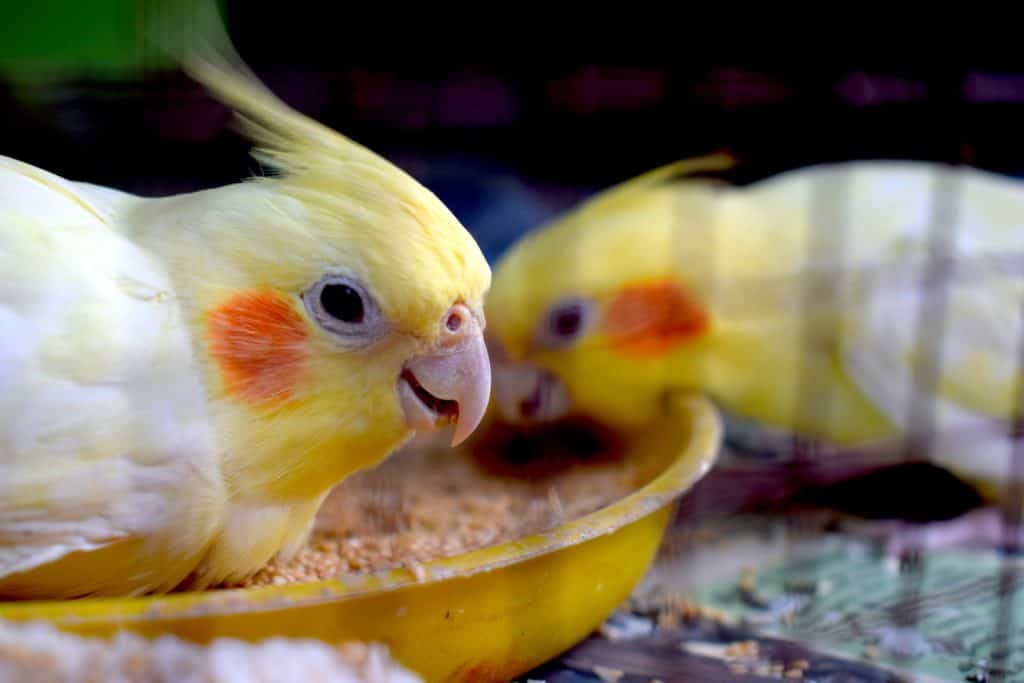
What foods are toxic to cockatiels?
The following are what can cockatiels not eat:
- Chocolate
- Fatty snacks and treats
- Alcohol
- Never feed you cockatiel Avocado
- Castor beans
- Chokecherry
- Onions
- Garlic
- Rhubarb
- Honey
- Caffeine
- Fruit seeds
- Milk
- Cream
- Raw potatoes
- Spicy and too much salt food to avoid kidney failure or liver damage
- Because cockatiels or certain bird species do not have an enzyme to break down lactose, dairy products are often avoided.
- Also, obesity wild cockatiels fly many miles each day. This may consume a substantial amount of calories. As a result, always be cautious not to overfed low fat fruits, as it is one of the most prevalent health issues among cockatiels kept in captivity and one of the major reasons they may die sooner than expected.
Before you offer anything to your pet bird, double-check whether he can eat it. I attempted to cover as many foods as feasible in this post, but there are simply too many meals and plants in the world to go through them all.
Foods cockatiels can eat
The perfect for cockatiels stable diet is not what you might believe. Seeds should only constitute a minor portion of their diet, and the bulk of it should be made up of pellets and fresh fruit and fresh vegetables.
The ideal cockatiel diet should include 75 to 80 percent pellets, with 20 to 25 percent fruits and vegetables. Seeds should only be given as special occasions.
Over feeding any birds species can cause health problems so always be careful not to over feed your cockatiel.
Let’s look at each component of the cockatiels’ diet in more detail to better comprehend what they need and why they need it.
Pellets
Cockatiels can benefit from a diet that is mostly composed of pellets. These pellets should make up 75 to 80% of their food intake. Pellets have been tailored to provide your bird with everything he or she needs for good health.
If you have a new bird, let them eat pellets as soon after they are introduced to you as possible. The sooner they begin eating pellets, the easier it will be for them to get accustomed to doing so, and the less resistance you will encounter.
The problem is that this food isn’t natural for adult cockatiels. Because they’ve never eaten them, many cockatiels aren’t even aware of the pellets as food. As a result, converting your bird from a seed-based to a pellet-based diet may be quite difficult.
However, while it may be tough to convert your cockatiel from the pleasant seeds they’re used to to the new pellets, it is essential that you do so. Your pet bird or other birds will appreciate it immensely and its lifespan will most certainly improve as a result of this.
A gradual move away from seed eating is a fantastic strategy to help you get there. If you abruptly cease feeding seeds to a bird that has gotten used to eating only seeds, it will not work. They will simply refuse to eat the pellets.
If you’re feeding a ferret Timothy or Winnie-the-Pooh, offer him two separate bowls: one for pellets and one for seeds. Reduce the amount of seeds in the seed bowl over a few weeks until it’s just enough to cover the surface.
- TEXTURE: An excellent beak trim toy, the textures of the wooden disks and leather strands encourage chewing and shredding to keep your bird busy and anxiety free with these toys parrot toys
- HOURS OF FUN: The Spinning Falls bird toys for parrots provide hours of fun; Your bird can climb, spin, and chew on this toy for near-endless entertainment
- SAFE FOR BIRDS: The wood pieces are dyed using natural food dyes, so your feathered friend can play it safe while having fun!
- VIBRANT: VIBRANT: This toy is comprised of brightly-colored wooden shapes hanging on multiple leather strings that will keep your feathered friend engaged for hours
- EASY INSTALLATION: The Spinning Falls toy attaches easily to any cage, ensuring your bird can start playing as quickly as possible
Seeds
Most cockatiels owners believe that fruits seeds like pits and apple seeds should make up the bulk of their cockatiels’ diet, despite the fact that they are not true nuts. In addition, some fruits seeds contain cyanide, which although found in too small quantities to be harmful to humans, they can actually be fatal for your bird.
It’s true that cockatiels adore a few nuts and seeds, but they should not be a major component of their diet, contrary to popular belief.
Seeds are extremely calorie and fat rich, so if your cockatiel’s diet is largely composed of seeds, it’s likely that he or she will become overweight.
Cockatiels consume seeds in the wild on a regular basis, but they also spend many more calories looking for them than they would eating them. The birds don’t move around as much in captivity, which means they burn significantly fewer calories. Cockatiels can eat sunflower seeds, provided they are as a treat rather than a regular component of their diet. When cockatiels eat seeds, always make sure seeds are clean and free of dangerous fungus or any other substances.
Fruits and vegetables
An essential component of your cockatiel’s diet is fresh fruits and vegetables. They provide your bird with important vitamins, minerals, and antioxidants and should make up 20 to 25% of your cockatiel’s overall food intake. Most vegetables, in general, have less micronutrients than fruits, therefore they should make up a greater portion of their diet.
Before you give your cockatiel any fresh foods, you must be sure to clean them thoroughly. Many fruits and vegetables include pesticides or other pollutants on the skin, which are harmful to your bird.
A combination of water and baking soda is the most effective approach to get rid of pesticides, according to studies. This is done by putting the produce in a colander and letting it soak in a bowl of cold water with the baking soda for a few minutes, then rinsing it with fresh water once more.
Fruits and veggies are a necessary component of your cockatiel’s diet, but they can not eat them all. There are many different fruits and vegetables on the market, and not all of them are adequate for your bird, so you should research the individual item prior to giving them to your pet. We have a large number of useful articles about whether different foods are suitable for your bird in the ‘Cockatiel Health’ section of this website.
White rice, bread, ordinary cereal such as cheerios, and pasta are a few examples of foods that you can give your cockatiels or wild birds. Small amounts of meat, such as cooked beef, chicken, or fish, can be a nice little treat for your cockatiel. These meals are an excellent source of protein but should not make up the bulk of your pet’s diet.
If you think your pet bird accidentally consumed toxic foods that are possibly harmful for cockatiels, consult a veterinarian immediately.
By being informed, you can ensure your cockatiel stays happy and healthy.
- Safety First: It’s crucial to understand which foods are harmful to your feathered friend. For example, you might be curious about leeks or even jackfruit.
- Treats and Risks: Some human foods can be risky for cockatiels. Discover whether it’s safe to share a treat like ice cream with your pet.
Can Cockatiels Eat Rice? (Is It Safe To Give To Your Pet Bird?)
Snacks for Cockatiels: Creative Ways to Present Cockatiel Treats
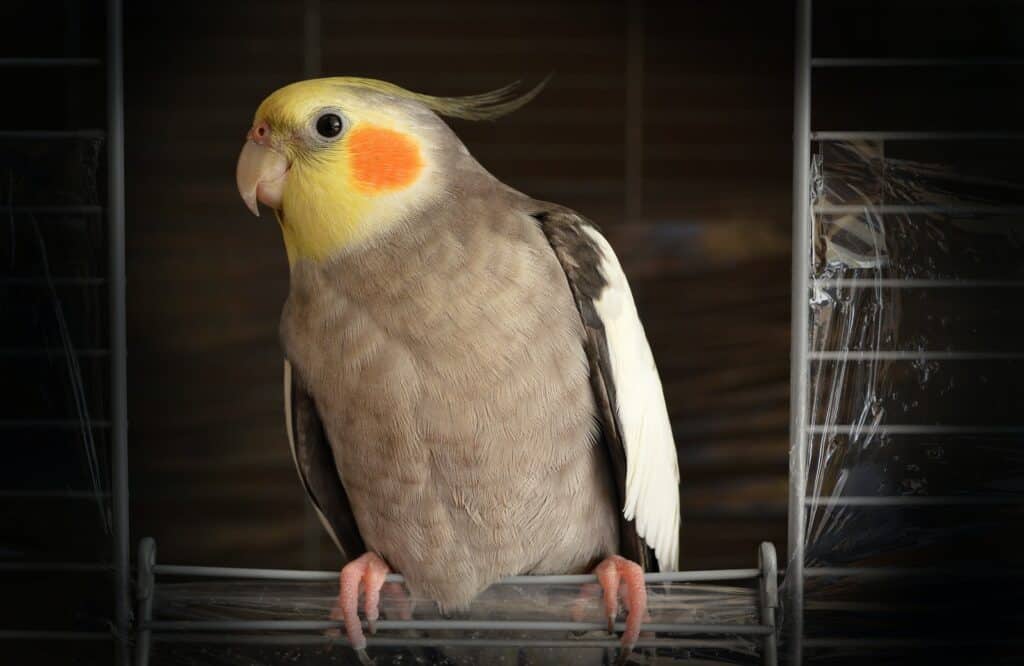

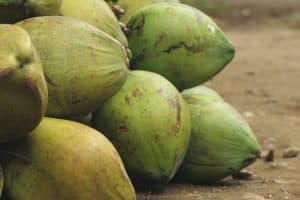
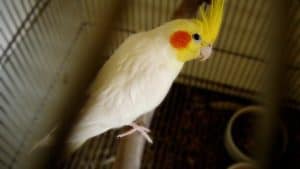
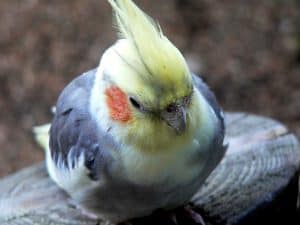
Very interesting topic, regards for posting.Money from
blog